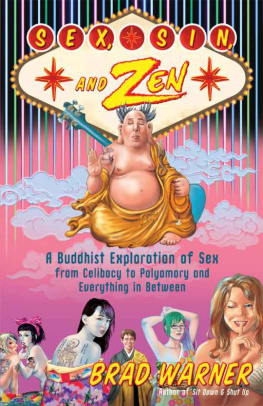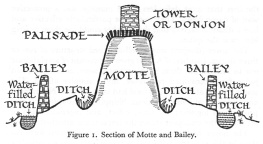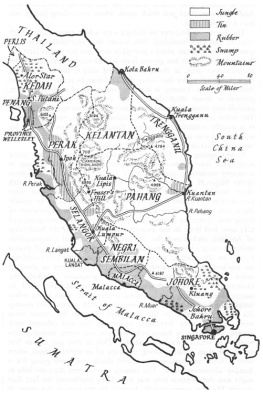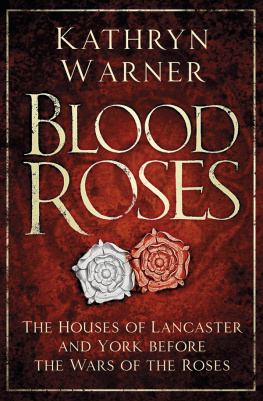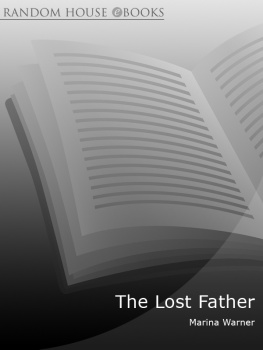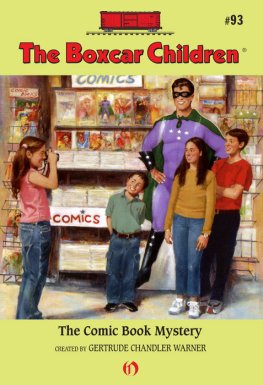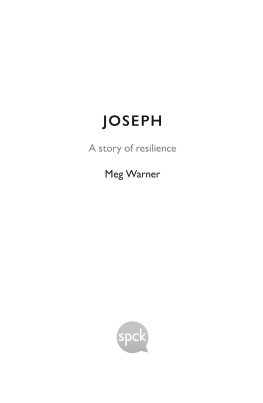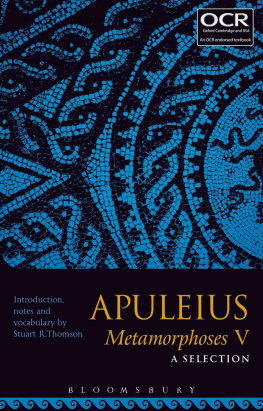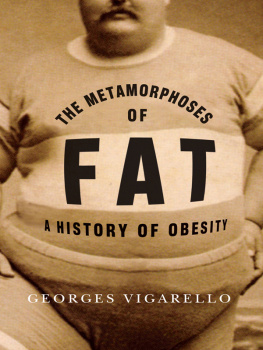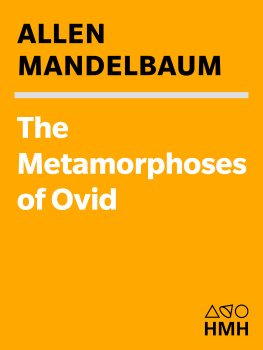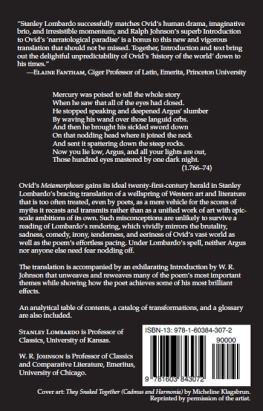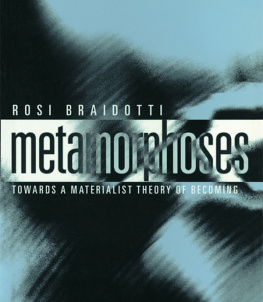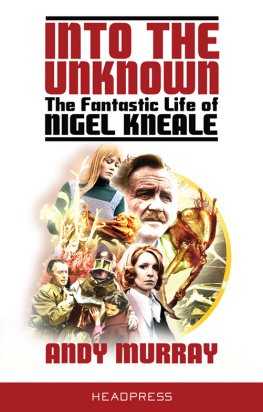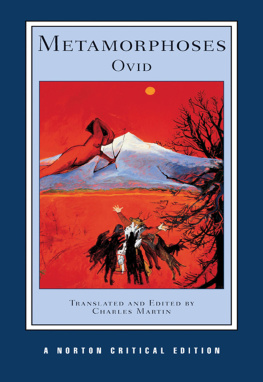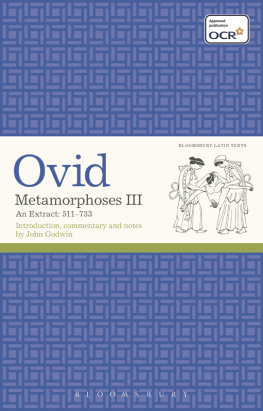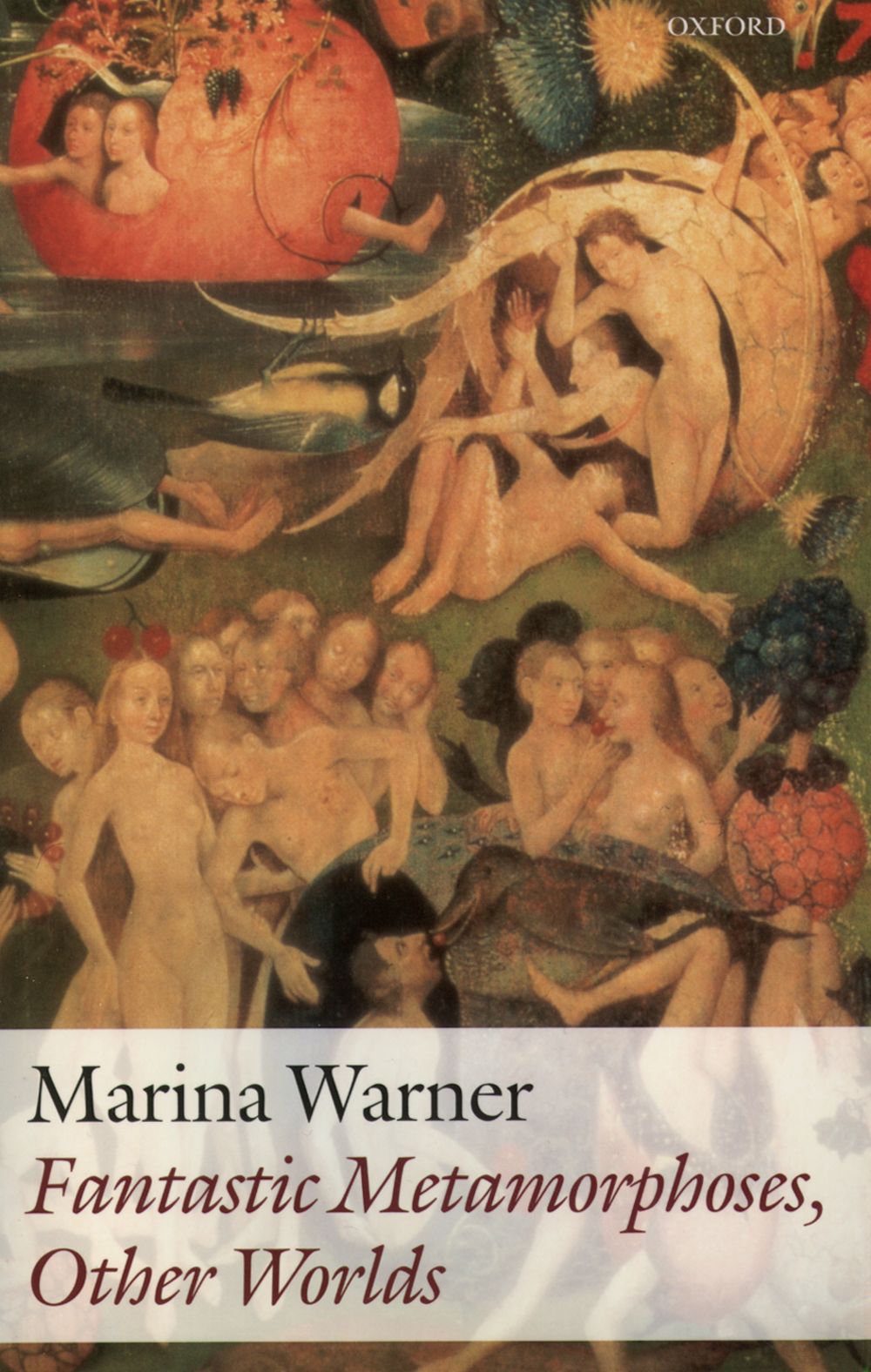Fantastic Metamorphoses,
Other Worlds
THE CLARENDON LECTURES
IN ENGLISH 2001
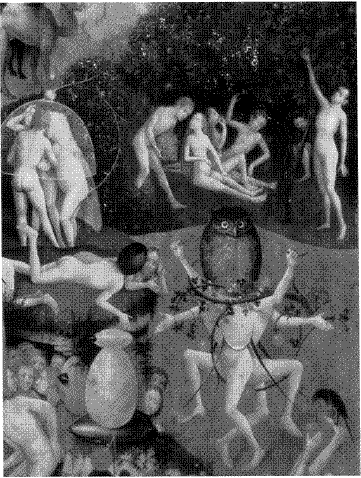
Frontispiece Hieronymus Bosch, The Garden of Earthly Delights, detail, c.1504, Prado, Madrid.
Fantastic
Metamorphoses,
Other Worlds
Ways of Telling the Self

MARINA WARNER

This book has been printed digitally and produced in a standard specification
in order to ensure its continuing availability

Great Clarendon Street, Oxford OX2 6DP
Oxford University Press is a department of the University of Oxford.
It furthers the Universitys objective of excellence in research, scholarship,
and education by publishing worldwide in
Oxford New York
Auckland Cape Town Dar es Salaam Hong Kong Karachi
Kuala Lumpur Madrid Melbourne Mexico City Nairobi
New Delhi Shanghai Taipei Toronto
With offices in
Argentina Austria Brazil Chile Czech Republic France Greece
Guatemala Hungary Italy Japan South Korea Poland Portugal
Singapore Switzerland Thailand Turkey Ukraine Vietnam
Oxford is a registered trade mark of Oxford University Press
in the UK and in certain other countries
Published in the United States by
Oxford University Press Inc., New York
Marina Warner 2002
Not to be reprinted without permission
The moral rights of the author have been asserted
Database right Oxford University Press (maker)
Reprinted 2007
All rights reserved. No part of this publication may be reproduced, stored in a retrieval system, or transmitted, in any form or by any means, without the prior permission in writing of Oxford University Press, or as expressly permitted by law, or under terms agreed with the appropriate reprographics rights organization. Enquiries concerning reproduction outside the scope of the above should be sent to the Rights Department, Oxford University Press, at the address above
You must not circulate this book in any other binding or cover
And you must impose this same condition on any acquirer
eISBN 978-0-19-926684-5
Printed and bound by CPI Antony Rowe, Eastbourne
For Hermione
But all the story of the night told over,
And all their minds transfigurd so together,
More witnesseth than fancys images,
And grows to something of great constancy.
A Midsummer Nights Dream
Thanks and Acknowledgements
Exchanges of many kinds helped me write these lectures. Conversations, letters, emails, word-of-mouth, have contributed to their making, and the resulting debt I owe friends and colleagues is very great. Many showed quite startling generosity in sharing information and opinions. I have been steered, guided, gently directed here and there by many hands, as in some friendly, enjoyable game of blind mans buff. The blindnesses remain my own.
I would like to thank especially Peter Hulme, who lent me his copy of Ramn Pan at the beginning of my hunt, directed further reading, and commented later on work in progress; David Richards, who shared his wide-ranging knowledge of cross-cultural encounters; Jonathan King, who showed me relevant material in the British Museum; Debbie Lee, whose emails opened up new references; Tim Fulford, who shared his perceptions into Romanticism; Mary Douglas, who was severe but all the more helpful for it. Richard Buxton, who has himself written insightfully on metamorphosis, guided more of my reading. During the lectures themselves, Hermione Lee was my constant tutor and my friend, keeping her critical ear alert to edit me with rigour; her care in this and many other ways transformed the lectures and my experience at Oxford. To her, all salutations and thanks, always. Adrian Poole read the drafts before I worked on them for publication, and I have followed his suggestions as closely as I could because they showed such sympathy in criticism, and such clarity in advice. Kenneth Gross also read parts, to inspirational effect, and I am indebted to him for numerous connections; Karl Miller has offered me advice and encouragement, which I greatly value. Sarah Bakewell threw light on the project from the start from a different perspective and also commented most helpfully on the drafts.
During the Michaelmas term I spent in Oxford, Roy Foster was an incomparable ally and friend; he also read some of the material in draft; Terence Cave inspired the direction of my thinking as ever; Meg Bent at All Souls added incomparable wit, thoughtfulness, and generosity to my period there as a Visiting Fellow. I am very grateful to her for her friendship. I was helped by numerous comments and suggestions by many of the Fellows: Myles Burnyeat gave a draft of one lecture exhilaratingly close scrutiny; Derek Parfit and Hannah Pickard both kindly also read parts, emending my non-philosophical vagueness; James Walmsley responded with a thoughtful challenge to my arguments in the first lecture. I was proud and delighted to be a member of the college for the term, and thank the Warden and the Dean of Visiting Fellows, Martin West, Ian Maclean, and others involved in my coming. I much appreciated the cheerful support of Julie Edwards at the college and, in the English faculty, Melanie Clancy. Sophie Goldsworthy was a great supporter of the idea and the series throughout; also at OUP, Frances Whistler and Sarah Hyland have seen the book through with scrupulous care, enthusiasm, and kindness.
At an earlier stage, the staff of the Wren Library, Trinity College, Cambridge, were most helpful, and Jean Khalfa ever a wise counsellor. I began giving a seminar on Metamorphosis at Stanford University, where Terry Castle was an inspiration; so were the students in the class, though it was unfortunately cut short by illness. This gave me a chance to read for several months, and I can never thank enough Irene Andreae who looked after me then without a word of impatience. Ive also benefited from giving lectures or seminars, and writing essays which have given me a chance to develop my ideas. The Fundacin de los Amigos del Prado and its director, Ines Cobo, prompted my voyage of discovery when they invited me to contribute to their lecture series on Immortal Stories; my research into Boschs Garden of Earthly Delights became the starting point for the whole series of lectures. Also in Madrid, Mercedes Garca-Arenal became a friend and inspiration. I am also grateful to Neil Corcoran at St Andrews, Gillian Beer at Cambridge, Oliver Taplin at Oxford, Stanley Wells, and Jonathan Bate, for the invitation to the International Shakespeare Association biennial conference, in Valencia, Spain; to the British Museum, and to Dan Hade who invited me to Penn State to a summer school; to James Lingwood of Artangel, London; to the History Department at Swansea for the honour of giving the Ernest Hughes Memorial lecture; to Jenny Uglow at the University of Kent for the invitation to give the Ian Gregor Memorial Lecture, and to Robert Fowler at the Bristol Institute of Hellenic and Roman Studies. The commission to select a show on the topic from Ken Arnold, of the Wellcome Institute, gave me access to another rich vein of material.


